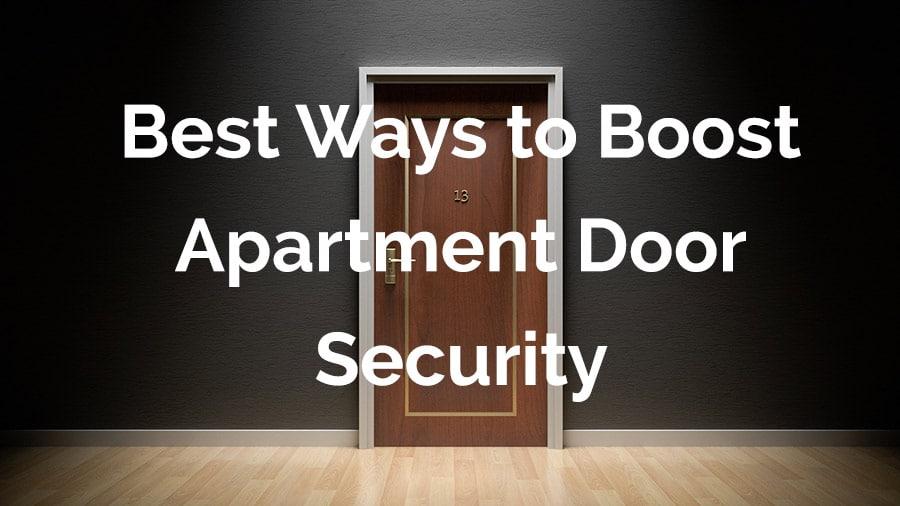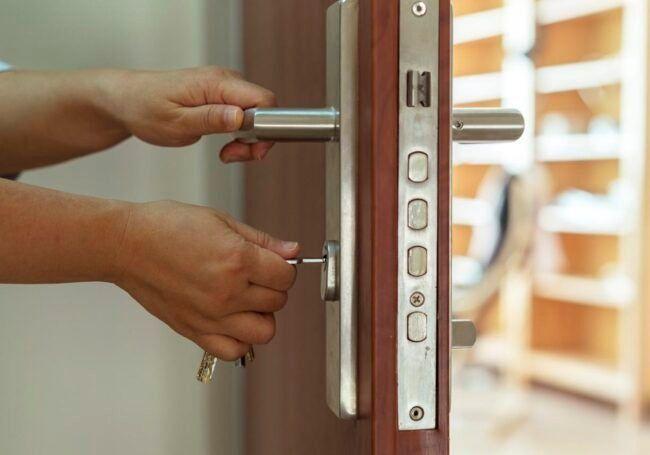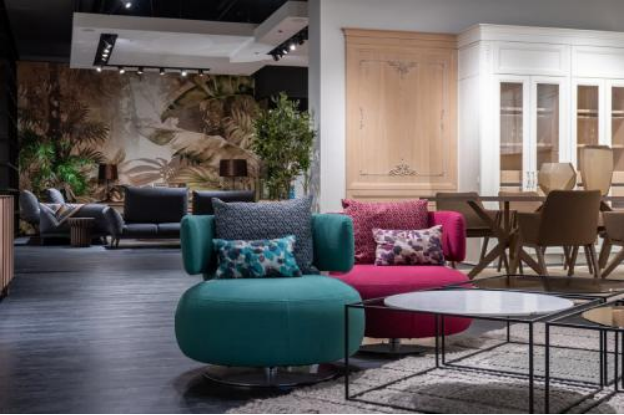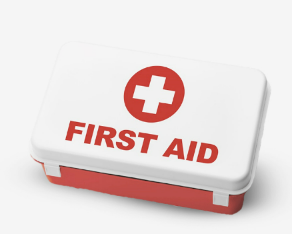7 Practical Ways to Enhance Apartment Door Security When Renting
Photo: istockphoto.com
Q: I recently rented a new apartment. After I moved in, I learned there has been an uptick in break-ins in the neighborhood, and now I’m nervous because I can’t do things like replace the whole door—I’m just a renter! What can I do to increase my apartment’s security?
A: Making changes and improvements is always tricky when you’re a renter. You don’t want to spend a fortune on improvements you can’t take with you when you move, and you’re only permitted to make changes that the property owner approves. But you’re right to be concerned about your security, especially if there are actually reports of increased crime in the area. While some property owners take security very seriously, others aren’t as focused on it, so you’ll need to take a series of steps on your own to make your apartment door security stronger. Luckily, some of the most useful steps will come at no or low cost to you aside from some time and effort.
Protect your home and family with a top-notch security system. Vivint’s professionally installed systems don’t just alert you to threats—they help both prevent and deter them. See Vivint’s cameras and services.
Ask the property owner if the lock has been rekeyed.
Photo: istockphoto.com
Be honest: Have you already made an extra copy of your new apartment key to leave with a friend in case you’re locked out? You’ve just moved in—which may mean that someone else has just moved out, and the previous renter may have done the same. Who knows who has copies of the key to your new home? The lock is the first line of defense, so you’ll want to be sure you’re the only person (other than the property owner) who has access. Asking the property owner if the lock was rekeyed before you moved in is a completely reasonable and responsible question to ask, and it’s important to ask that it be rekeyed or the lock be replaced if it has not. You can sometimes tell if a lock has recently been replaced, especially if it looks newer than the rest of the locks, but it’s best to ask. The property owner shouldn’t mind being asked or showing you documentation; it suggests that you take protecting their property seriously.
AdvertisementBlock any view into your apartment.
Especially if you’re on the ground floor or lower, you’ll want to cover the windows in a way that prevents would-be home invaders from seeing what is inside, whether that’s your new television, your laptop, your purse, or yourself. This doesn’t have to be expensive to be effective; inexpensive bedsheets or attractive pieces of fabric can easily be tacked or hung up with removable hooks to block the view without obscuring the light. Pull-down shades aren’t expensive and can be installed with a few very basic tools, and home improvement stores even carry stick-on fabric blinds that adhere to the window and can be removed with some warm water when you’re ready to move. Privacy film is easy to apply and remove, and it’s a great option if the view from your window isn’t appealing. If you’re not interested in attaching something directly to the wall or window, consider your furniture placement: A freestanding bookcase positioned at the correct angle can function as a room divider and block the view into your apartment. Finally, consider what’s in view when you open your door, and consider moving easy-to-grab valuables from sight. What potential criminals can’t see won’t tempt them.
Need a home security system? SimpliSafe can help. With a comprehensive whole-house solution, you can be prepared for the unexpected. View SimpliSafe systems and prices.
Photo: istockphoto.com
Install a deadbolt lock if you don’t already have one.
How is your apartment door secured? Ideally, the door will have a lock of some kind on the knob or handle and a sturdy, secure deadbolt. Some apartments also have chain locks or top deadbolts for extra security. If yours only has a knob lock, or if the deadbolt is old, loose, or doesn’t smoothly open and close, you’ll want to replace or add one. You’ll need permission from the property owner to do this, and the property owner may choose to take care of it rather than having you do it. However, this isn’t something on which you should compromise; deadbolts are a necessary part of a secure home. The best deadbolts need something more than a tired wooden door jamb to sink into, so when you discuss the deadbolt with your property owner, request that the new lock be made entirely of steel and that the installation include a strike box (a reinforced metal box that increases the strength of the doorframe and makes the lock more difficult to kick in). If the property owner opts not to install one for you but gives you permission to install one yourself, the best door lock installation kits come with templates and clear instructions to make the job pretty straightforward if you’re handy, and an easy job for a local handyman.
Advertisement
If you have an inward-swinging door, consider installing a door jammer and a door brace.
While you’re waiting for the locks to be improved—or even after—for extra peace of mind, these simple-to-use tools can add a layer of security. Door jammers, or door security bars, are adjustable metal tubes with a nonslip rubber foot on the bottom and a rubberized cup- or V-shaped block at the top. To use one, adjust the length of the pole, wedge the cup-shaped block under the doorknob, and then firmly press or kick the foot toward the door until it is firmly wedged in place. Should someone try to open the door while the bar is in place, pressure on the door will tighten the position of the bar, making it impossible to open the door. These bars can be used on the main entry door, but they are also one of the best bedroom door lock options if you’d like another layer of security between you and the entry door at night, or if you have roommates against whom you’d like to secure the door overnight.
For lever-handled doors, there are also jammers that fold in half, wedging underneath the door itself and pressing into the floor behind itself to create the same effect (these are also the best portable door locks for travel).
Frontpoint protects your home in an emergency, whether it’s a break-in, fire, medical emergency, and more. View Frontpoint products.
Other braces can be more permanently installed. Floor barricade bases can be screwed into the floor just inside the threshold to be out of the way when not in use, and then a plate can be slipped into the base to prevent the door from being opened. Strike plate locks can be screwed into the wall near the door, and both stand in the way of the door opening (similar to a chain) but also feature a loop that slips over the doorknob, preventing the door from opening without tearing off the knob. These options do require installation, so you’ll either need permission from your property’s owner or good patching skills for when you move out.
AdvertisementPhoto: istockphoto.com
Invest in a rental-friendly security system.
Home security systems used to be limited to single-family property owners, but the recent explosion of DIY security systems has fostered competition between the DIY options and traditional home security companies, who are now offering an array of security options for renters (we even found the best apartment security systems). This is a wonderful development, because renters are actually burglarized more often than homeowners—probably because they’re thought to be easy targets, as they’re not always able to upgrade their doors and locks as easily as homeowners are. This puts you at additional risk, and it can be frustrating to feel like there aren’t as many steps you can take to secure your home as you’d like.
As a result of this competition between DIY and traditional home security companies, however, you’ll have a lot of options to choose from. DIY systems can be as simple as a doorbell or peephole camera that shows you who is outside the door (and sometimes lets you interact with the visitor without opening the door) or as complex as a system of cameras and door and window sensors connected to an app on your phone. Some DIY systems are unmonitored and simply alert you to a break-in so you can take action. Even Amazon’s Alexa offers security features: Alexa Guard can turn your Alexa-connected Echo devices into listening devices that sense sounds like breaking glass or footsteps, and Alexa Intruder Alert allows you to program Alexa devices to flash the lights, shout at the intruder, or play loud music or an alarm sound. These DIY options give you the opportunity to call the authorities to come to your apartment and may give you time to secure another door or get out of the apartment as you summon help. They provide an additional benefit as well: Signage or indications that an apartment or rented home has security installed may scare off would-be criminals and encourage them to choose another target.
AdvertisementThis psychological benefit also applies to traditional home security companies: a sticker on the door with the name of a well-known security company on it may dissuade burglars from choosing your door. Criminals want to be quiet and unobtrusive, and especially in a target-rich apartment building, they will have plenty of other options to choose from if you make your door less appealing. Traditional security companies also have a number of options, some of which offer a DIY installation for renters. Most offer a monitored option, where someone at the security company is keeping an eye on your sensors and will alert you and the authorities if something goes wrong. The programs designed for renters are usually priced differently than those for homeowners. In some cases, the equipment can be removed and taken with you to a new apartment and the service transferred at minimal or no cost; in other cases the contract terms are shorter so you don’t get stuck paying for a security system you can’t use if you have to move. Monitored systems have another benefit: They’ll often save you money on your renters insurance. Regardless of whether you’re interested in DIY or traditional security, self-monitored or professionally monitored, it’s worth investigating your options, which may be more affordable and customizable than you think and can bring you great peace of mind.
Deep Sentinel Home Security systems can make you and your family feel safe and secure with top-of-the-line equipment and live guards watching your home. View Deep Sentinel Home Security systems and prices.
Talk to the property owner.
One of the best ways to get permission to secure your rental is to have a good relationship with the property owner. Presumably, the property owner also has an interest in avoiding a break-in, because the resulting damage (both the physical damage to the property and the damage to the safety reputation of the building) from a break-in can be costly. If you’re friendly and businesslike in your approach, you’re more likely to get a positive response—even if you’re angry that security problems haven’t been handled in the way you’d prefer. First, it’s generally a good plan to communicate with the property owner about security (and other) issues in writing. If you have a good relationship, it might seem easier to have a chat on the landing or in the parking lot, but it’s better to have a record of your requests and their responses in case you need to press an issue later. If you do have a verbal conversation, follow up via email that same day to go over what you discussed.
AdvertisementIt’s also ideal to help the property owner solve the problem. Rather than demanding that they find an answer, you can helpfully offer the suggestion of a solution and even offer to take care of it for them (if you’re able to). Larger property management companies likely have workers on staff who can quickly and easily handle small projects for them, but for a property owner who manages several smaller properties on their own, a tenant who emails with a problem and a potential solution may be more likely to get a positive response.
Finally, remember that you’re paying rent for the space in which you live and that you deserve to feel safe in it. It’s reasonable to ask the property owner who has access to your apartment other than yourself, along with what hours they may have access and what the policy is for notifying you that someone will require access (if this isn’t already in your lease). Door security is a fair request, as are repairs to windows that don’t lock securely (or at all) or other safety and security concerns around your apartment.
Photo: istockphoto.com
Get renters insurance.
Similar to how many people don’t realize that home security systems are available for renters, renters insurance is an affordable coverage that many people are not aware of.
Some property owners require that their renters carry a renters insurance policy so that they won’t be liable for their renters’ personal property in the event of a fire or other catastrophe, but often that requirement is the first time many renters are aware that renters insurance is even available.
Much like homeowners insurance, renters insurance is based on the amount of property you want to insure. You’ll pay an annual premium, select a deductible (how much you’ll have to pay out of pocket before the insurance kicks in), and select a coverage limit. Renters insurance policies do not cover the building itself or the property on which it sits—that’s a job for the insurance carried by the property owner—so in the event of a break-in, the physical damage to the door or window and any walls or permanent fixtures will be covered by the property owner. The items in your apartment, however, are your responsibility, and the damage caused during a break-in or burglary can mount up much faster than you might think.
AdvertisementRenters insurance policies are quite affordable and can provide coverage so that a break-in or fire doesn’t claim your financial security as well as your personal items. It’s bad enough to lose things that are precious to you without realizing that you can’t afford to replace them. Developing good apartment door security and making your apartment less appealing to burglars is important; choosing a security system and protecting yourself financially against loss will complete your apartment security plan.
Advertisement


